Jakarta, MINA – Vice President Ma’ruf Amin supports the steps of the Islamic Ummah Congress to discuss and unite the community in finding solutions to the challenges of climate change.
“That the Muslims are starting, I hereby support the treatise and indeed there must be concrete action not only seminars, discussions but how we take real action,” said Ma’ruf when giving a key speech at the Congress of Muslims for Sustainable Indonesia at the Mosque Istiqlal, Jakarta on Friday.
The Vice President said that environmental issues and climate change are crucial issues at the local, national and global levels. All parties are required to participate in efforts to overcome the impacts caused by climate change.
Ma’ruf said the Indonesian government is committed with other countries in efforts to reduce carbon emissions through the 2019 Road Map Nationally Determined Contribution and a long-term strategy for low-carbon development with climate resilience by 2050.
Also Read: Indonesia-Oman Agree on Visa Waiver for Diplomatic, Service, and Special Passports
In addition, Indonesia as the Chair of the 2022 G-20 also raised the issue of climate change with an emphasis on the scale of climate resilience, efforts to reduce carbon emissions, and green technology. However, the government said Ma’ruf could not work alone in overcoming the problem of climate change.
According to him, wider stakeholder involvement is needed, including academia, the business world, mass media, and the community, especially Muslims, to work collaboratively so that the phenomenon of climate change can be anticipated properly.
“Therefore, Muslims must unite to participate in efforts to overcome climate change so that the results are more effective,” he said.
In this regard, Ma’ruf also appealed to religious leaders and Muslims to play an active role in conveying issues related to environmental damage. Ma’ruf also emphasized that this commitment is not only ceremonial, but also proven by concrete actions to change in responding to climate change. So that later it becomes a reflection of Islam as a religion of rahmatan lil ‘alamin.
Also Read: Indonesian Navy Prepares Three Hospital Ships for Humanitarian Mission in Gaza
“I hope that the Congress of Muslims for Sustainable Indonesia can produce the recommendations that I have heard and take concrete follow-up actions, we wait, don’t wait for the minutes but there is no what next, no action, usually until the minutes of recommendations wabillahi taufik walhidayat,” said Ma ‘ruf,
At the event, minutes and recommendations were read by collaborators and initiators of the Muslim Congress for a Sustainable Indonesia, which consisted of the Indonesian Ulema Council (MUI), the Environmental Council (MLH) of PP Muhammadiyah, the Institute for Disaster Management and Climate Change (LPBI) and the Executive Board of Nahdlatul Ulama (PBNU), Republika, the Department of Politics and Government (DPP) Universitas Gadjah Mada (UGM), and the Istiqlal Global Fund (IGF).
The Congress conveyed seven points of invitation to all Muslim circles in Indonesia to achieve Sustainable Indonesia. The seven points of invitation are as follows:
1. Global climate change has been going on for a long time. The crisis it caused was real. But it is still not understood and addressed optimally by Muslims. Therefore, it is necessary strategic communication and in line with the understanding and interests of the people through various Islamic studies.
Also Read: Floods Spread in North Aceh, Eight Districts Submerged
2. Islamic religious leaders and Muslim leaders must take a leading role in efforts to deepen the substance of Islamic studies, communication and education to the people. The aim is to consistently emphasize the wedge between the climate crisis and faith and religion.
3. Climate change has an impact on all sectors of people’s lives, thus requiring solutions based on Islamic values, rooted in local wisdom and carried out systematically, according to local needs and contexts.
4. Strong collaboration between Muslims is needed to take initiatives and support policies concrete actions aimed at tackling climate change, through partnerships with governments and other sectors.
5. Vulnerable groups such as youth and women should be encouraged to play a leadership role in managing and organizing climate change solutions.
Also Read: Chinese Investment in Central Java Surges; Fujian Proposes Direct Semarang–Fuzhou Flight
6. In efforts to mitigate and adapt to climate change, it is necessary to utilize sharia financing and other religious social funds (eg infaq, shodaqoh, and waqf).
7. Islamic religious institutions, ranging from mosques to Islamic educational institutions (including Islamic boarding schools), must develop environmentally friendly insights and behaviors and provide strategic spaces to develop studies, initiatives, implementation, and innovations for Muslims to be actively involved in action o climate change. (T/RE1)
Mi’raj News Agency (MINA)
Also Read: Umar ibn Al-Khattab’s Speech Before Entering Jerusalem Highlighted at AWG Commemoration






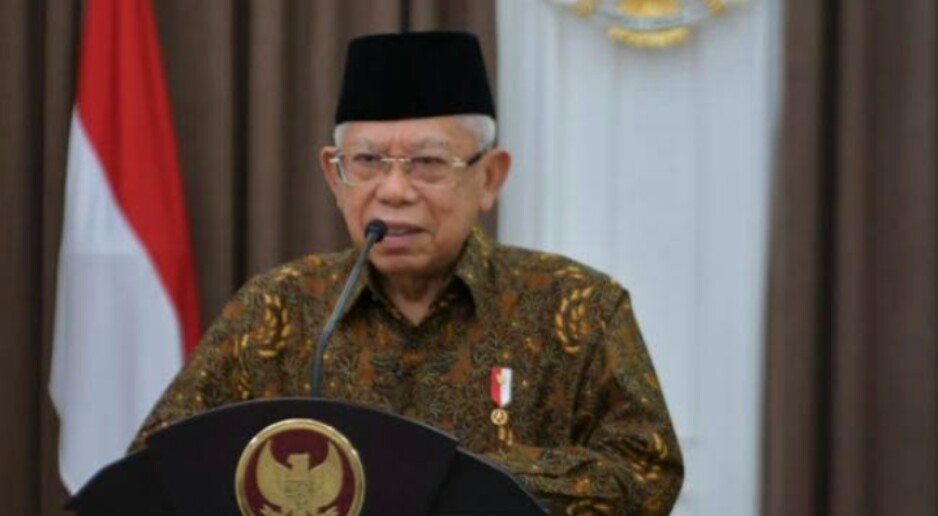







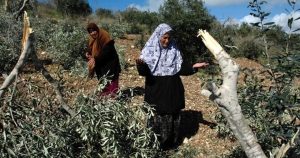

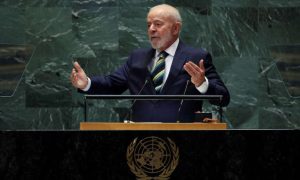
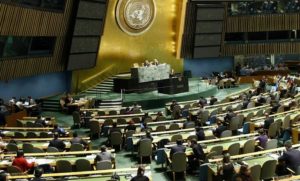

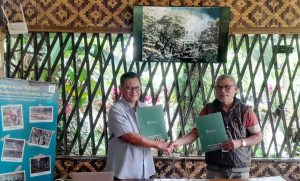

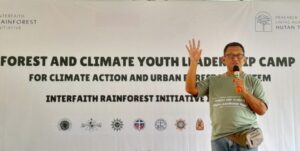













 Mina Indonesia
Mina Indonesia Mina Arabic
Mina Arabic